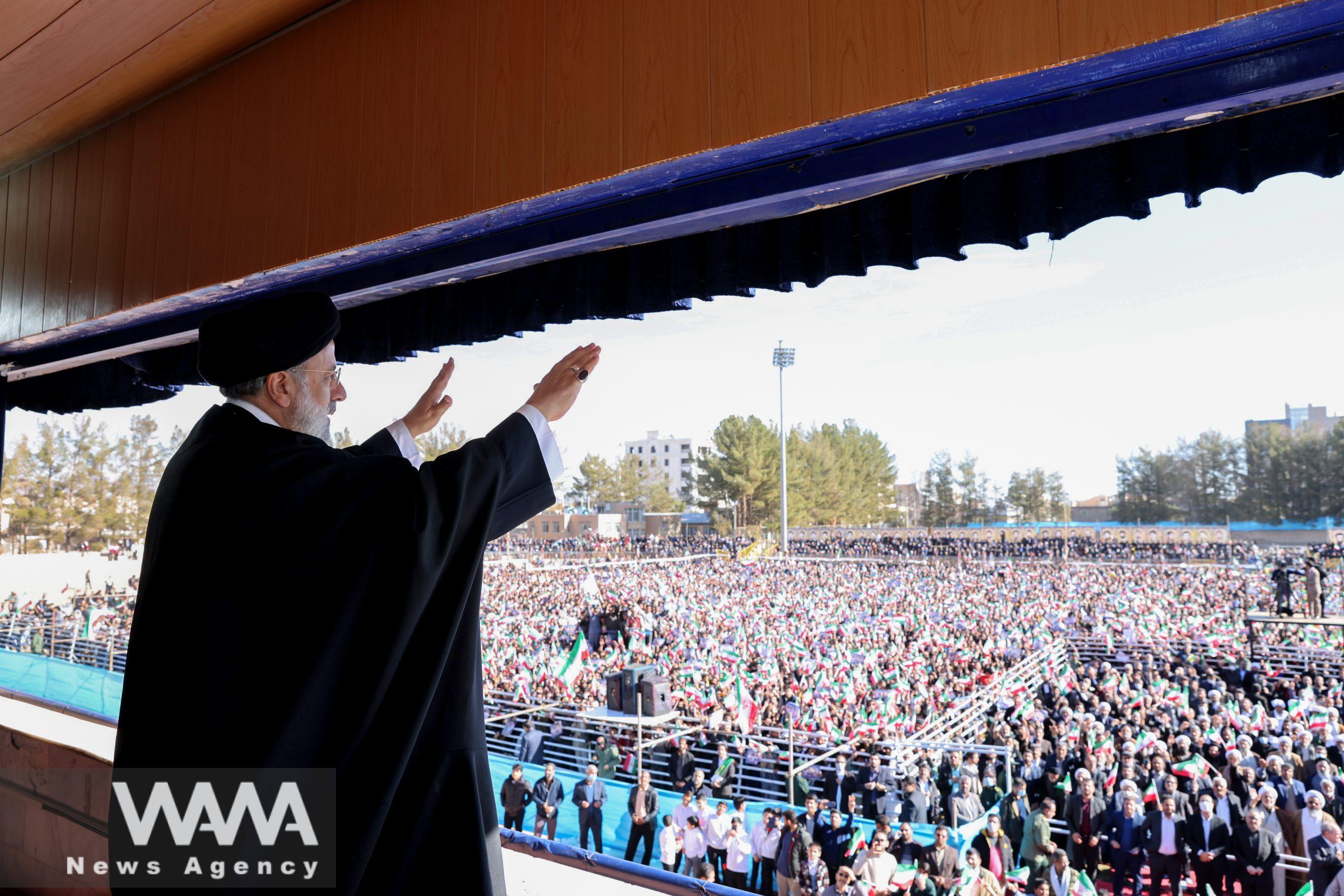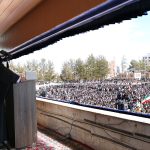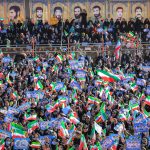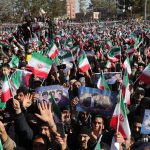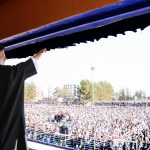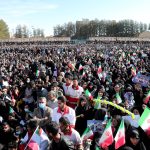As protests receded, Raisi seeks to augment his popularity
WANA (DEC15) – These days, Iran’s President Seyyed Ebrahim Raisi has resumed his provincial visits with more seriousness. To some extent, such visits had led to increase his popularity among the middle class in Iran.
Before the last few months, most polls indicated that despite numerous economic problems and the inefficiency of some government directors in managing the situation, the president’s popularity among the people was increasing, although that was not so much considerable. Despite the political views in the Iranian society, ordinary people consider the incumbent president of Iran as an honest, respectful person with good intentions. However, they are still not sure to what extent he with his sensitive morale, can resolve the abundant problems inherited from the previous government and amend the economic situation.
The pictures taken of people’s reception of the latest appearance of the Iranian president in South Khorasan province indicate that whether the adversaries of the Islamic Republic of Iran like it or not, Ebrahim Raisi has still advocates who believe in his methods and view. It was not expected that after the latest protests in Iran, the president’s provincial visits would be well received, but his recent tour to South Khorasan revealed a different image and finding.
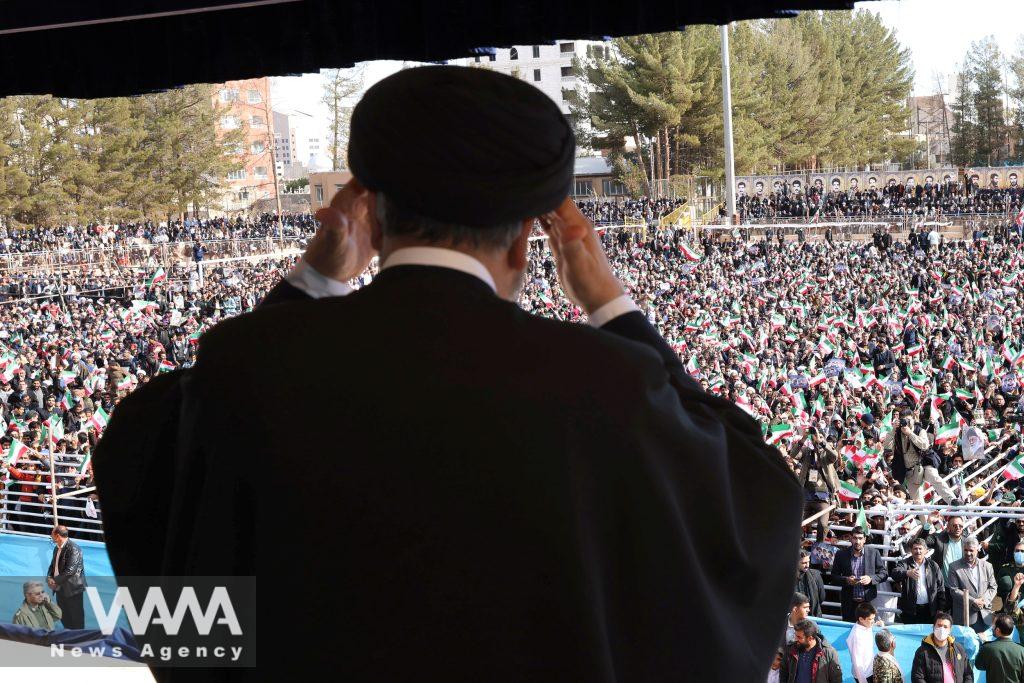
The visit of the President of Iran, Dr. Ebrahim Raisi to South Khorasan province – 15 DEC 2022 – President office / WANA News Agency
When protests erupted throughout the country in the aftermath of the death of Mahsa Amini, lambasting the president and weakening his government was included in the list of things that could contribute to the project of overthrowing the Islamic Republic of Iran.
In the last three months, the policy adopted by Raisi and his cabinet has been to make the least comments as reaction to the protests in Iran, with this interpretation that their statements should not lead to a more complicated situation. Of course, in several occasions Mr. Raisi has concisely referred to the issue of protests in Iran, but none of his statements, at least until today, have been so sharp and pungent to provoke the other side to more riots.
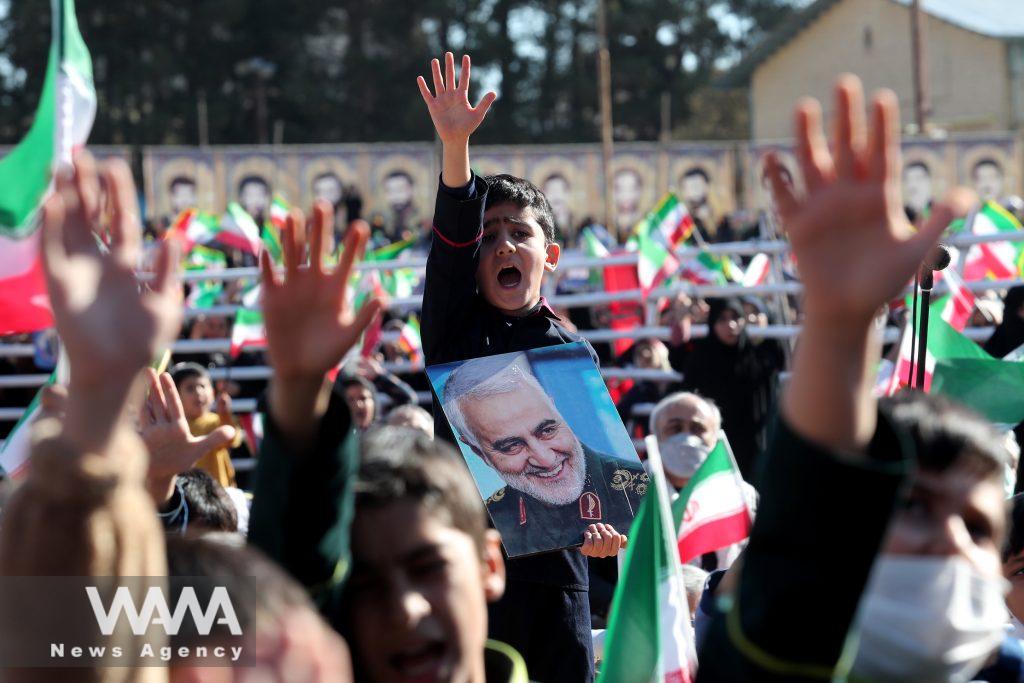
The visit of the President of Iran, Dr. Ebrahim Raisi to South Khorasan province – 15 DEC 2022 – President office / WANA News Agency
The protests erupted with the key words “No to Mandatory Hijab”, but later on it became clear that obviously this is not the main demand of the protesters and the institutions and governments behind the protests, who in a bigger picture rather seek to prove the incompetency of the Islamic state and ultimately overthrow the Islamic Republic of Iran.
The Raisi administration still believes that the main objective behind the recent riots is to hold up or upset the economic projects and the forward movement of a Principalist government in Iran. They believe that the success of a Principalist government in the country will weaken the influence of extra-regional powers in West Asia, particularly in Iran.
Moreover, in the aftermath of many failures in the political arena and as a pro-Western current, the reformist current in Iran, will be pushed to the sidelines of power and politics for a long time, and above all, the “axis of resistance” that challenges American, the West and particularly Israel policies in the region, is strengthened which is not in the interest of the other parties.
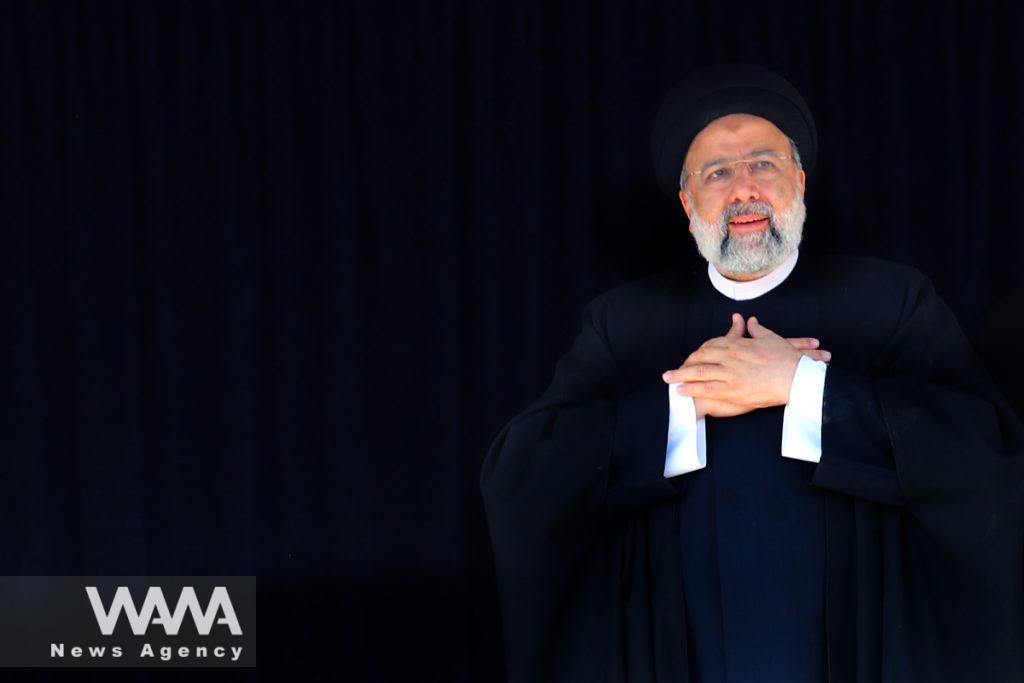
The visit of the President of Iran, Dr. Ebrahim Raisi to South Khorasan province – 15 DEC 2022 – President office / WANA News Agency
Cynicism toward any protest and movement in Iran, and claiming that most of these protests have a behind-the-scenes, is not exclusive to Principalist politicians in Iran. Such a view is also voiced by reformist politicians when they take office. The former president of Iran Hassan Rouhani, who took office backed by the reformist movement and was seen as a moderate politician, during the protests of 2019, considered the Americans and the West to be the key cause of all the unrest in Iran.
He lists the conspiracies of the U.S. and Zionists against the country as follows: taking action to divide Iran in the first months after the victory of the Revolution; attempting to stage a coup d’état against the Revolution; launching an imposed war through Iraq against Iran that lasted eight years; and their fourth conspiracy was imposing inappropriate and cruel sanctions.
Mr. Rouhani believes that the West has been defeated by the Iranians in all these arenas and has not been able to win even in one case. Interpreting the details of the multiple failures of American policies on Iran, Rouhani believes that “the reason behind the successive failures of the Americans against the Iranian nation was their miscalculations about the Iranian nation”, both in pre and post Revolution victory eras. It worth mentioning that after Trump took office in the United States and withdrew from the JCPOA, Rouhani and his Foreign Minister, Mohammad-Javad Zarif (PhD), blasted the Americans and West in the last year of their term.
- The visit of the President of Iran, Dr. Ebrahim Raisi to South Khorasan province – 15 DEC 2022 – President office / WANA News Agency
- The visit of the President of Iran, Dr. Ebrahim Raisi to South Khorasan province – 15 DEC 2022 – President office / WANA News Agency
- The visit of the President of Iran, Dr. Ebrahim Raisi to South Khorasan province – 15 DEC 2022 – President office / WANA News Agency
- The visit of the President of Iran, Dr. Ebrahim Raisi to South Khorasan province – 15 DEC 2022 – President office / WANA News Agency
- The visit of the President of Iran, Dr. Ebrahim Raisi to South Khorasan province – 15 DEC 2022 – President office / WANA News Agency
Even a totally reformist president, a politician who is accused of being the key advocate of the West in Iran Mohammad Khatami, was the most blatant critic of the U.S. and the West in the last months of his eight-year presidency. For instance, in January 2005, when the U.S. attempted to challenge Iran on the issue of “human rights”, Khatami clearly and furiously stated: “The U.S. is not allowed to utter a word on human rights among others.”
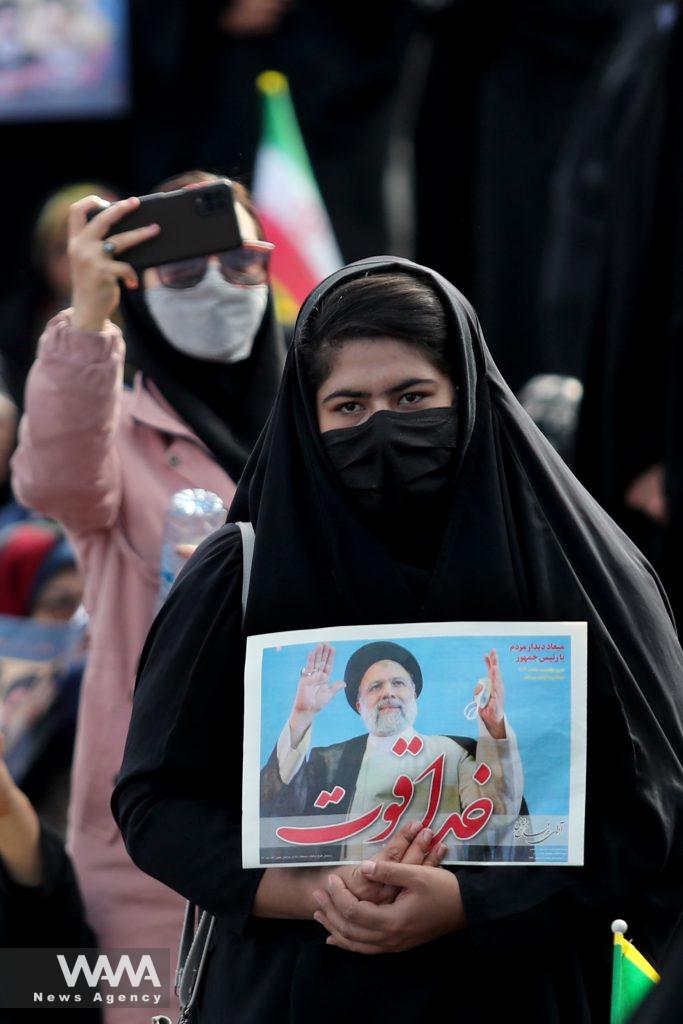
The visit of the President of Iran, Dr. Ebrahim Raisi to South Khorasan province – 15 DEC 2022 – President office / WANA News Agency
At any rate, it seems that Raisi’s administration plan is not to withdraw from its earlier policies in the political and economic issues. He is seeking more attendance among people and advance the goals he promised during his election campaigns. Raisi reminded today that he has not forgotten the vow to resolve the housing problem and that his government will be committed to his promise.
He also added that he aims to lift the sanctions, but at the same time will try to offset them. By reiterating the slogan “we can”, he seeks to enhance the tendency toward domestic capacities instead of begging foreign countries.

